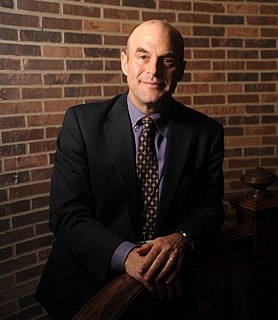A Quote by William Binney
The ultimate goal of the NSA is total population control, but I'm a little optimistic with some recent Supreme Court decisions, such as law enforcement mostly now needing a warrant before searching a smartphone.
Related Quotes
Class warfare always sounds good. Taking action against the rich and the powerful and making 'em pay for what they do, it always sounds good. But that's not the job of the Supreme Court. The Supreme Court standing on the side of the American people? The Supreme Court adjudicates the law. The Supreme Court determines the constitutionality of things and other things. The Supreme Court's gotten way out of focus, in my opinion.
In fact, Native American Rights Fund has a project called the Supreme Court Project. And quite frankly, it's focused on trying to keep cases out of the Supreme Court. This Supreme Court, Justice Roberts is actually, hard to believe, was probably worse than the Rehnquist Court. If you look at the few decisions that it's issued.
We often imagine that the court serves as a sort of neutral umpire controlling the warring political branches. But this is mostly myth. The justices of the Supreme Court are themselves actors in the struggle for power, and when they intervene, they think carefully about how their decisions will affect the court's own legitimacy and authority.
The Supreme Court is about the Constitution. It is about constitutionality. It is about the law. At its bear simplest, it's about the law. It is not about the Democrat Party agenda. Because that's what it's become. The whole judiciary has become that because that's the kind of people they have put on various courts as judges, and every liberal justice on the Supreme Court is a social justice warrior first and a judge of the law second. And if they get one more, then they will have effectively corrupted the Supreme Court.
If you're an Indian, you could be very anxious about some of the Supreme Court's decisions, some of the decisions of policy makers, so maybe a little bit of irony there. But I think our "Savage Anxieties," when I titled the book, I really wanted to focus people on the challenge that tribes in this country, as well as indigenous peoples around the world, are confronting Western civilization with.
We should start calling this law SCOTUScare ... [T]his Court's two decisions on the Act will surely be remembered through the years ... And the cases will publish forever the discouraging truth that the Supreme Court of the United States favors some laws over others, and is prepared to do whatever it takes to uphold and assist its favorites.
In 1979, the Supreme Court ruled 5-3 in Smith v. Maryland that a few days' worth of phone records for a single individual were not protected by the Fourth Amendment. The NSA today, though, collects hundreds of millions of phone records from hundreds of millions of Americans without an individualized warrant.
The primary source of waste in government is that legislators are often under heavy pressure to vote for projects that will benefit their campaign contributors, even when those projects fail a simple cost-benefit test. But with the Supreme Court showing little interest in permitting tighter rules on campaign contributions in recent years, there is little reason to be optimistic that we'll start curbing this kind of waste any time soon.
We often imagine that the court serves as a sort of neutral umpire controlling the warring political branches. But this is mostly myth. The justices of the Supreme Court are themselves actors in the struggle for power, and when they intervene, they think carefully about how their decisions will affect the courts own legitimacy and authority.
The notion that the Supreme Court comes up with the ruling and that automatically subjects the two other branches to following it defies everything there is about the three equal branches of government. The Supreme Court is not the supreme branch. And for God's sake, it isn't the Supreme Being. It is the Supreme Court.
































